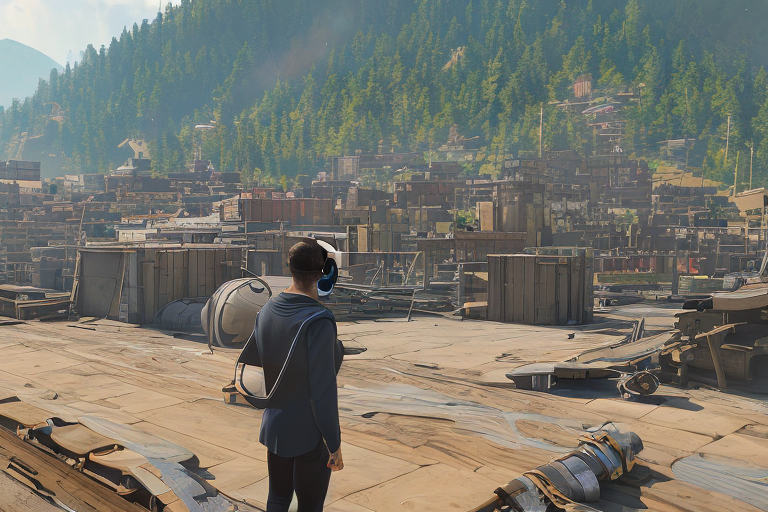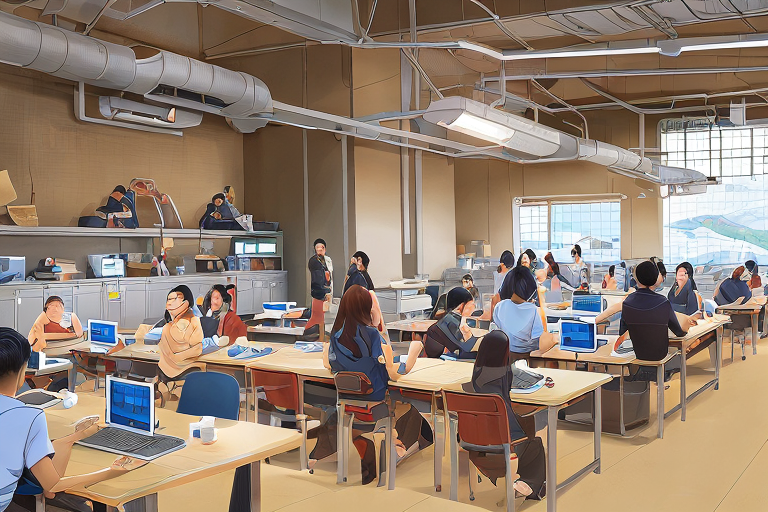"VR이 사회문화에 끼친 영향" ("The Impact of Virtual Reality on So…
본문

가상 현실(VR)은 게임, 교육, 의료 및 엔터테인먼트를 포함한 다양한 산업에 걸쳐 광범위한 애플리케이션을 통해 혁신적인 기술이 되었습니다. 그러나 그 영향은 이러한 분야를 넘어 사회와 문화 전반으로 확대됩니다. 이 기사에서, 우리는 VR이 사회와 문화에 미치는 영향과 긍정적이고 부정적인 영향, 그리고 VR의 잠재적인 미래를 탐구할 것입니다.
VR이 사회에 미치는 가장 중요한 영향 중 하나는 사람들이 이전에는 불가능했던 방식으로 디지털 환경과 상호 작용할 수 있는 몰입형 경험을 만드는 능력입니다. 예를 들어, VR 기술은 게이머들에게 더 현실적이고 매력적인 경험을 제공하여 그들이 게임 세계 안에 있는 것처럼 느끼도록 할 수 있습니다. VR은 또한 의료와 같은 분야의 실제 시나리오를 시뮬레이션하는 데 사용될 수 있어 의료 전문가들이 안전하고 통제된 환경에서 기술을 연습하고 개선할 수 있습니다.

VR의 또 다른 중요한 영향은 이전에는 많은 사람들이 접근할 수 없었던 경험에 대한 접근을 민주화할 수 있는 잠재력입니다. 예를 들어, VR은 사람들이 먼 곳을 방문하거나, 행사에 참석하거나, 그렇지 않았다면 할 수 없었을 활동을 경험할 수 있게 해줍니다. 이것은 다른 공동체 간의 더 큰 문화적 교류와 이해로 이어질 수 있습니다.
하지만, VR이 사회와 문화에 미치는 잠재적인 부정적인 영향도 있습니다. 예를 들어, VR 경험의 몰입적인 특성은 중독으로 이어질 수 있으며, 이는 사람들의 정신 건강과 복지에 해로울 수 있습니다. 또한, VR은 사람들이 실제 세계보다 가상 환경에서 더 많은 시간을 보내도록 장려함으로써 사회적 고립을 악화시킬 수 있습니다.

한국에서는 VR이 사회와 문화에 큰 영향을 미친 사례가 몇 가지 있습니다. 한 가지 예는 교육에 VR을 사용하는 것입니다. 일부 한국 학교들은 그들의 커리큘럼을 향상시키고 학생들에게 더 몰입적이고 몰입적인 학습 경험을 제공하기 위해 VR 기술을 사용하기 시작했습니다. 또 다른 예는 관광 산업에서 VR을 사용하는 것입니다. 한국 정부는 사람들이 그 나라의 문화와 명소를 가상으로 경험할 수 있도록 하면서 한국 관광을 홍보하기 위해 VR 기술에 투자했습니다.
결론적으로, VR은 사회와 문화에 많은 영향을 미칠 수 있는 잠재력을 가진 혁신적인 기술입니다. 중독과 사회적 고립과 같은 잠재적인 부정적인 영향이 있지만, 경험에 대한 접근을 민주화하고 몰입형 학습 환경을 만드는 것과 같은 VR의 긍정적인 영향을 무시할 수 없습니다. VR 기술이 계속 발전함에 따라, 사회와 문화에 미치는 영향을 고려하고 모든 사람에게 이익이 되는 방식으로 사용되도록 하는 것이 필수적일 것입니다.
Virtual Reality (VR) has become a transformative technology with a wide range of applications across various industries, including gaming, education, healthcare, and entertainment. However, its impact extends beyond these sectors to society and culture at large. In this article, we will explore the effects of VR on society and culture, including the positive and negative implications, and the potential future of VR.
One of the most significant impacts of VR on society is its ability to create immersive experiences that allow people to interact with digital environments in ways that were previously impossible. For example, VR technology can provide a more realistic and engaging experience for gamers, allowing them to feel like they are inside the game world. VR can also be used to simulate real-world scenarios in fields such as medicine, allowing medical professionals to practice and refine their skills in a safe and controlled environment.
Another significant impact of VR is its potential to democratize access to experiences that were previously inaccessible to many people. For example, VR can enable people to visit far-off places, attend events, or experience activities that they might not have been able to otherwise. This could lead to greater cultural exchange and understanding between different communities.
However, there are also potential negative impacts of VR on society and culture. For example, the immersive nature of VR experiences could lead to addiction, which could be detrimental to people's mental health and well-being. Additionally, VR could exacerbate social isolation by encouraging people to spend more time in virtual environments than in the real world.
In Korea, there are several cases where VR has had a significant impact on society and culture. One example is the use of VR in education. Some Korean schools have started to use VR technology to enhance their curriculum and provide students with a more engaging and immersive learning experience. Another example is the use of VR in the tourism industry. The Korean government has invested in VR technology to promote tourism to Korea, allowing people to experience the country's culture and attractions virtually.
In conclusion, VR is a transformative technology that has the potential to impact society and culture in many ways. While there are potential negative implications, such as addiction and social isolation, the positive impact of VR, such as democratizing access to experiences and creating immersive learning environments, cannot be ignored. As VR technology continues to develop, it will be essential to consider its impact on society and culture and ensure that it is used in a way that benefits everyone.






















댓글목록 0